In this article, you’ll learn how to say Happy New Year in Korean, understand the cultural differences between the Solar New Year and Lunar New Year, and discover essential phrases and vocabulary to make the most of this festive season.
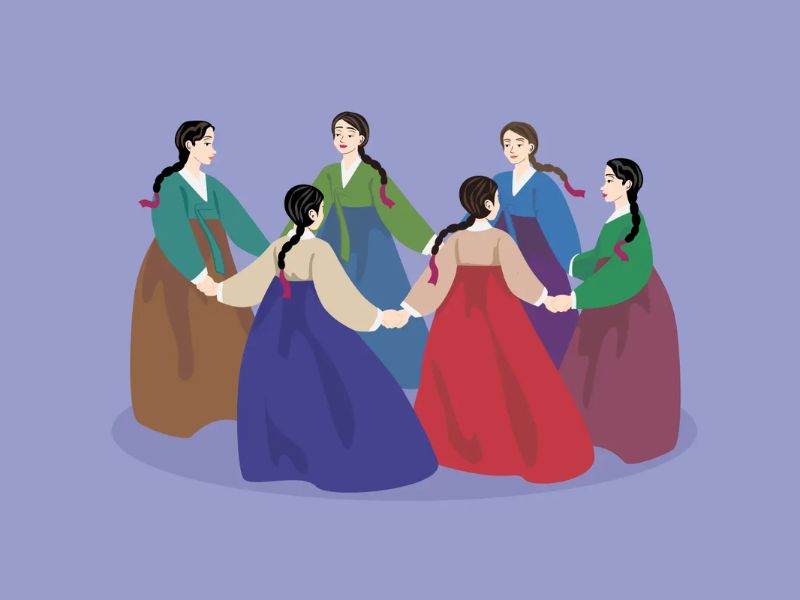
Understanding Korean New Year Celebrations
Before you learn how to say Happy New Year in Korean language, it’s important to understand that Korea celebrates two types of New Year: the Solar New Year (January 1st) and the Lunar New Year (the lunar calendar). If you’re just getting started with Korean greetings, check out our guide to saying Hello in Korean for a strong foundation.
Happy New Year in Korean – Solar New Year (신정 – Sinjeong)
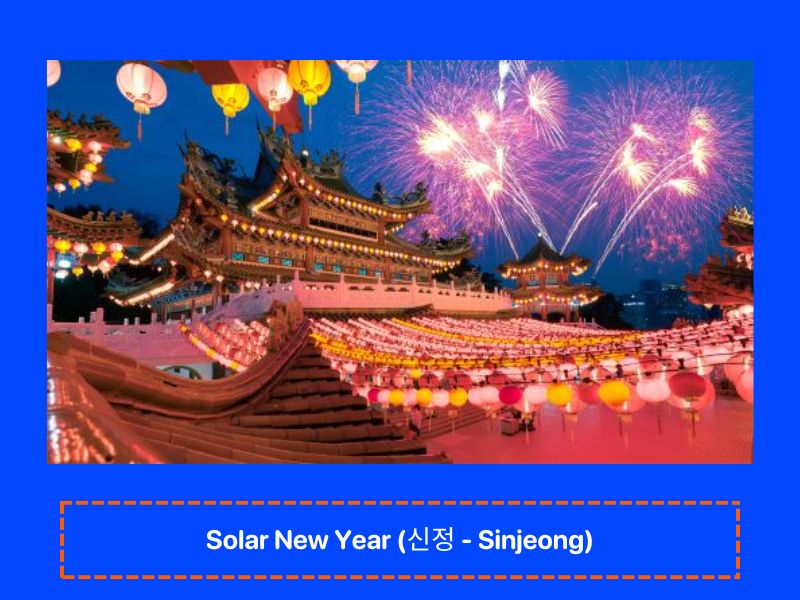
The Solar New Year in Korea, known as 신정 (Sinjeong), is celebrated on January 1st, just like in many Western countries. While it’s considered a public holiday, it’s generally less traditional and more modern in tone.
People often make New Year’s resolutions, meet friends, or simply enjoy a day off. Still, you’ll hear plenty of people saying “Happy New Year” in Korean as a warm greeting. It’s also a time when common greetings like Good Morning in Korean feel extra meaningful.
Happy New Year in Korean – Lunar New Year (설날 – Seollal)
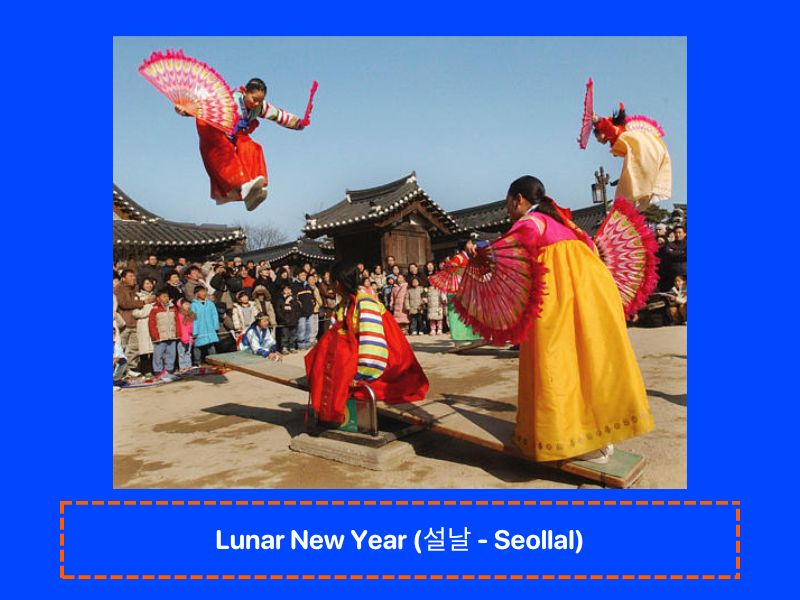
The Lunar New Year, or 설날 (Seollal), is the bigger of the two New Year holidays and one of the most important traditional celebrations in Korea. This is when families gather, pay respects to ancestors, wear hanbok (traditional clothing), and eat symbolic dishes like 떡국 (Tteokguk).
If you’re looking to say happy lunar new year in Korean, Seollal is the context where you’ll use the most respectful and heartfelt greetings. It’s also a moment when expressions of gratitude, like Thank You in Korean, carry deep cultural weight.
Common Ways to Say “Happy New Year” in Korean
There are multiple ways to say Happy New Year in Korean, depending on the level of formality. Here are the most commonly used phrases, so you can greet anyone—from elders to friends—with confidence and cultural sensitivity.
새해 복 많이 받으세요 (Saehae bok mani badeuseyo) – Standard and Polite
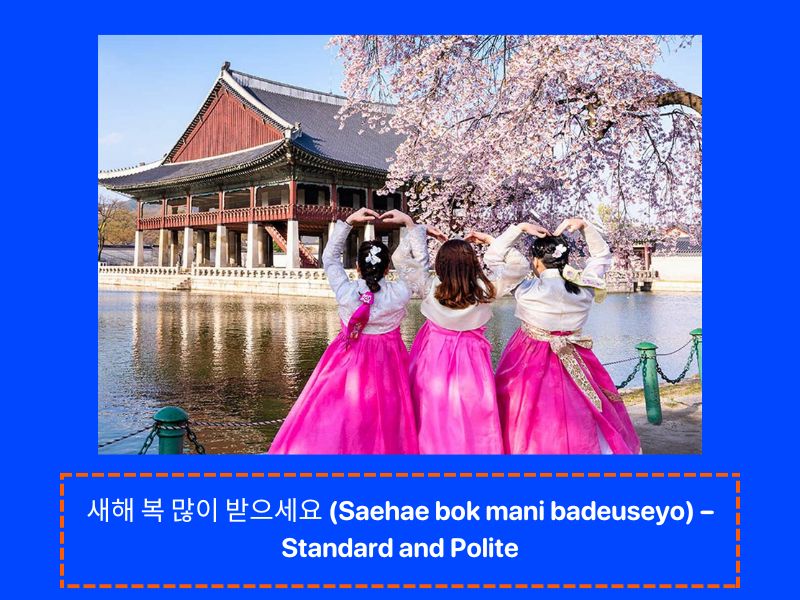
This is the most widely used and polite way to say Happy New Year in Korean. You can safely use it with anyone—friends, coworkers, teachers, or strangers.
- Meaning: Please receive lots of luck in the new year.
- Use: Everyday situations, when you’re being polite but not overly formal.
- Pronunciation: [Sae-hae bok ma-ni ba-deu-se-yo]
If you’re wondering how to say Happy New Year in Korean language, this phrase should be your go-to.
새해 복 많이 받으십시오 (Saehae bok mani badeusipsio) – Formal
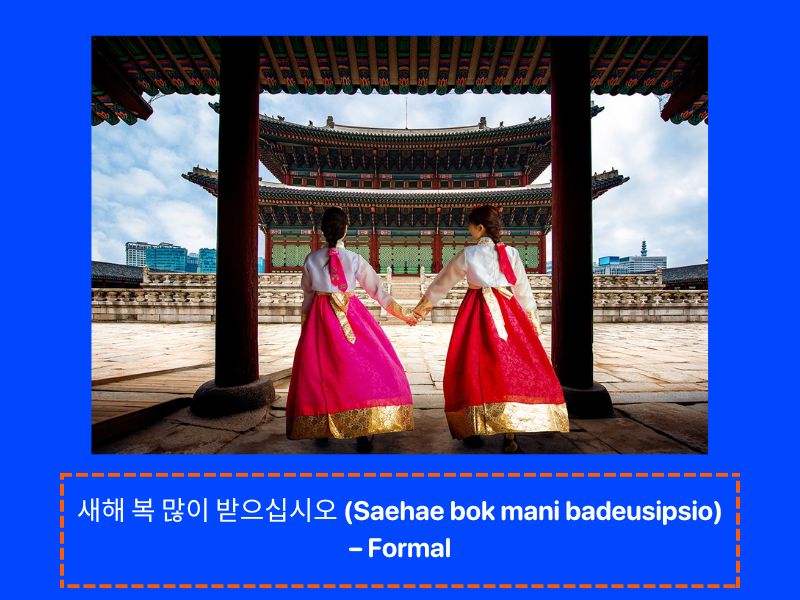
This is the formal version of the greeting and is used in very respectful or professional situations.
- Meaning: (Formal) Please receive many blessings in the new year.
- Use: In official messages, formal speeches, or when addressing elders or VIPs.
- Pronunciation: [Sae-hae bok ma-ni ba-deu-ship-shi-o]
This version is also commonly seen in written greetings or holiday cards. If you’re looking for “happy new year translate in Korean” for formal use, this is the one to remember.
새해 복 많이 받아 (Saehae bok mani bada) – Informal

This is the casual way to say Happy New Year and should be used with people you’re close to, like friends your age or younger family members.
- Meaning: Get lots of luck in the new year.
- Use: With close friends, siblings, or younger people.
- Pronunciation: [Sae-hae bok ma-ni ba-da]
This version is perfect for texting or chatting with friends. For those learning Korean through casual conversation or K-dramas, you’ll often hear this phrase during festive episodes.
See more: I love you in Korean
Vocabulary Related to New Year Celebrations
To better understand how Koreans celebrate the New Year and deepen your cultural knowledge, here are some key Korean words related to the holiday. These terms often appear in greetings, family gatherings, and even K-dramas around this time of year.
설날 (Seollal) – Lunar New Year
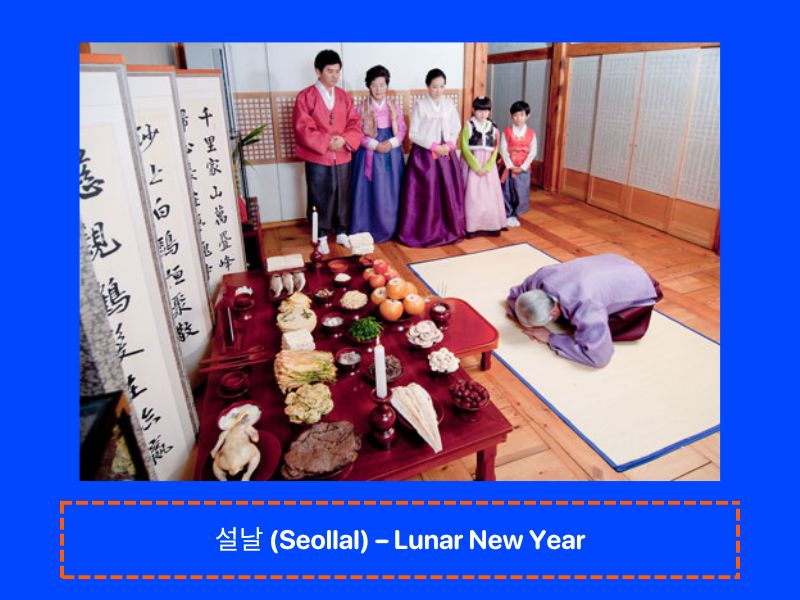
As mentioned, 설날 is Korea’s Lunar New Year. It usually spans three days and is filled with family traditions, travel, and food. When someone mentions happy lunar new year in Korean, this is the holiday they are referring to.
세배 (Sebae) – New Year’s Bow

Sebae is the traditional deep bow performed by younger family members to show respect to their elders. In return, elders often offer words of wisdom, blessings, and 세뱃돈 (sebaetdon), or New Year’s money.
If you’re participating in a Korean New Year celebration, learning about sebae shows great cultural appreciation.
떡국 (Tteokguk) – Rice Cake Soup

Eating 떡국 is a must during Seollal. This hot soup made with sliced rice cakes symbolizes gaining a year in age and starting the new year with purity and good fortune.
In Korea, it’s common to say that you haven’t gotten older until you’ve eaten your bowl of tteokguk!
복 (Bok) – Luck or Blessings

The word 복 means “luck” or “blessings,” and it’s central to all New Year greetings. You’ll see it in decorations, on greeting cards, and in the phrase “새해 복 많이 받으세요.”
Understanding this concept gives deeper meaning to how Koreans express their New Year wishes.
Conclusion
Saying Happy New Year in Korean is more than just learning a phrase—it’s a way to participate in one of Korea’s most heartfelt and tradition-rich holidays. From the standard “새해 복 많이 받으세요” to the formal “새해 복 많이 받으십시오,” you’re now equipped with the phrases and vocabulary to greet anyone warmly during the New Year season.